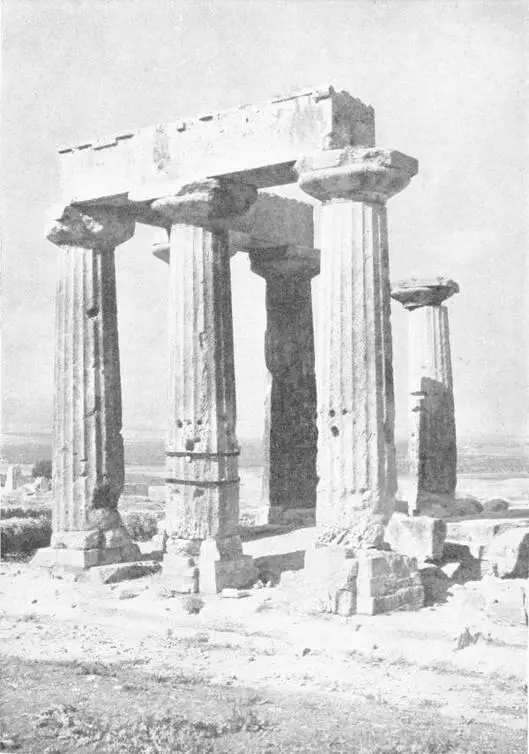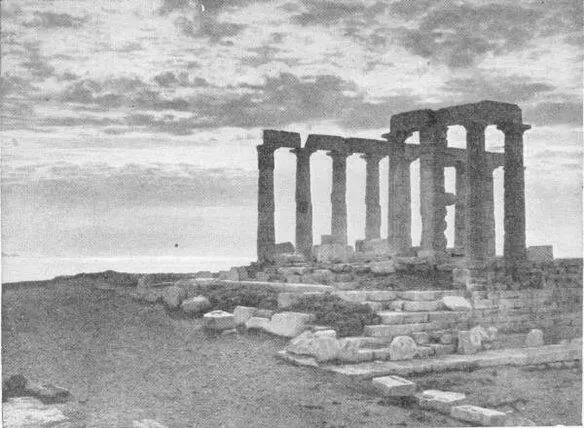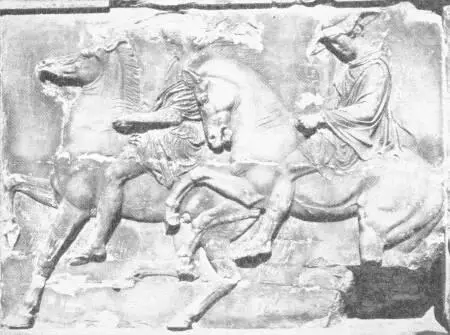Herbert Wells - A Short History of the World
Здесь есть возможность читать онлайн «Herbert Wells - A Short History of the World» весь текст электронной книги совершенно бесплатно (целиком полную версию без сокращений). В некоторых случаях можно слушать аудио, скачать через торрент в формате fb2 и присутствует краткое содержание. Год выпуска: 2011, Жанр: История, на английском языке. Описание произведения, (предисловие) а так же отзывы посетителей доступны на портале библиотеки ЛибКат.
- Название:A Short History of the World
- Автор:
- Жанр:
- Год:2011
- ISBN:нет данных
- Рейтинг книги:4 / 5. Голосов: 1
-
Избранное:Добавить в избранное
- Отзывы:
-
Ваша оценка:
- 80
- 1
- 2
- 3
- 4
- 5
A Short History of the World: краткое содержание, описание и аннотация
Предлагаем к чтению аннотацию, описание, краткое содержание или предисловие (зависит от того, что написал сам автор книги «A Short History of the World»). Если вы не нашли необходимую информацию о книге — напишите в комментариях, мы постараемся отыскать её.
A Short History of the World — читать онлайн бесплатно полную книгу (весь текст) целиком
Ниже представлен текст книги, разбитый по страницам. Система сохранения места последней прочитанной страницы, позволяет с удобством читать онлайн бесплатно книгу «A Short History of the World», без необходимости каждый раз заново искать на чём Вы остановились. Поставьте закладку, и сможете в любой момент перейти на страницу, на которой закончили чтение.
Интервал:
Закладка:
He returned himself to Susa but he left an army in Thrace and Macedonia, and Macedonia submitted to Darius. Insurrections of the Greek cities in Asia followed this failure, and the European Greeks were drawn into the contest. Darius resolved upon the subjugation of the Greeks in Europe. With the Phœnician fleet at his disposal he was able to subdue one island after another, and finally in 490 B.C. he made his main attack upon Athens. A considerable Armada sailed from the ports of Asia Minor and the eastern Mediterranean, and the expedition landed its troops at Marathon to the north of Athens. There they were met and signally defeated by the Athenians.
An extraordinary thing happened at this time. The bitterest rival of Athens in Greece was Sparta, but now Athens appealed to Sparta, sending a herald, a swift runner, imploring the Spartans not to let Greeks become slaves to barbarians. This runner (the prototype of all “Marathon” runners) did over a hundred miles of broken country in less than two days. The Spartans responded promptly and generously; but when, in three days, the Spartan force reached Athens, there was nothing for it to do but to view the battlefield and the bodies of the defeated Persian soldiers. The Persian fleet had returned to Asia. So ended the first Persian attack on Greece.
The next was much more impressive. Darius died soon after the news of his defeat at Marathon reached him, and for four years his son and successor, Xerxes, prepared a host to crush the Greeks. For a time terror united all the Greeks. The army of Xerxes was certainly the greatest that had hitherto been assembled in the world. It was a huge assembly of discordant elements. It crossed the Dardanelles, 480 B.C., by a bridge of boats; and along the coast as it advanced moved an equally miscellaneous fleet carrying supplies. At the narrow pass of Thermopylæ a small force of 1400 men under the Spartan Leonidas resisted this multitude, and after a fight of unsurpassed heroism was completely destroyed. Every man was killed. But the losses they inflicted upon the Persians were enormous, and the army of Xerxes pushed on to Thebes and Athens in a chastened mood. Thebes surrendered and made terms. The Athenians abandoned their city and it was burnt.
Greece seemed in the hands of the conqueror, but again came victory against the odds and all expectations. The Greek fleet, though not a third the size of the Persian, assailed it in the bay of Salamis and destroyed it. Xerxes found himself and his immense army cut off from supplies and his heart failed him. He retreated to Asia with one half of his army, leaving the rest to be defeated at Platea (479 B.C.) what time the remnants of the Persian fleet were hunted down by the Greeks and destroyed at Mycalæ in Asia Minor.

ALL THAT REMAINS OF THE GREAT TEMPLE OF CORINTH
Photo: Fred Boissonnas
The Persian danger was at an end. Most of the Greek cities in Asia became free. All this is told in great detail and with much picturesqueness in the first of written histories, the History of Herodotus. This Herodotus was born about 484 B.C. in the Ionian city of Halicarnassus in Asia Minor, and he visited Babylon and Egypt in his search for exact particulars. From Mycalæ onward Persia sank into a confusion of dynastic troubles. Xerxes was murdered in 465 B.C. and rebellions in Egypt, Syria and Media broke up the brief order of that mighty realm. The history of Herodotus lays stress on the weakness of Persia. This history is indeed what we should now call propaganda—propaganda for Greece to unite and conquer Persia. Herodotus makes one character, Aristagoras, go to the Spartans with a map of the known world and say to them: “These Barbarians are not valiant in fight. You on the other hand have now attained the utmost skill in war .... No other nations in the world have what they possess: gold, silver, bronze, embroidered garments, beasts and slaves. All this you might have for yourselves, if you so desired .”

THE TEMPLE OF NEPTUNE (POSEIDON) AT CAPE SUNIUM
Photo: Fred Boissonnas
XXV
THE SPLENDOUR OF GREECE
THE century and a half that followed the defeat of Persia was one of very great splendour for the Greek civilization. True that Greece was torn by a desperate struggle for ascendancy between Athens, Sparta and other states (the Peloponnesian War 431 to 404 B.C.) and that in 338 B.C. the Macedonians became virtually masters of Greece; nevertheless during this period the thought and the creative and artistic impulse of the Greeks rose to levels that made their achievement a lamp to mankind for all the rest of history.
The head and centre of this mental activity was Athens. For over thirty years (466 to 428 B.C.) Athens was dominated by a man of great vigour and liberality of mind, Pericles, who set himself to rebuild the city from the ashes to which the Persians had reduced it. The beautiful ruins that still glorify Athens to-day are chiefly the remains of this great effort. And he did not simply rebuild a material Athens. He rebuilt Athens intellectually. He gathered about him not only architects and sculptors but poets, dramatists, philosophers and teachers. Herodotus came to Athens to recite his history (438 B.C.). Anaxagoras came with the beginnings of a scientific description of the sun and stars. Æschylus, Sophocles and Euripides one after the other carried the Greek drama to its highest levels or beauty and nobility.
The impetus Pericles gave to the intellectual life of Athens lived on after his death, and in spite of the fact that the peace of Greece was now broken by the Peloponnesian War and a long and wasteful struggle for “ascendancy” was beginning. Indeed the darkling of the political horizon seems for a time to have quickened rather than discouraged men’s minds.
Already long before the time of Pericles the peculiar freedom of Greek institutions had given great importance to skill in discussion. Decision rested neither with king nor with priest but in the assemblies of the people or of leading men. Eloquence and able argument became very desirable accomplishments therefore, and a class of teachers arose, the Sophists, who undertook to strengthen young men in these arts. But one cannot reason without matter, and knowledge followed in the wake of speech. The activities and rivalries of these Sophists led very naturally to an acute examination of style, of methods of thought and of the validity of arguments. When Pericles died a certain Socrates was becoming prominent as an able and destructive critic of bad argument—and much of the teaching of the Sophists was bad argument. A group of brilliant young men gathered about Socrates. In the end Socrates was executed for disturbing people’s minds (399 B.C.), he was condemned after the dignified fashion of the Athens of those days to drink in his own house and among his own friends a poisonous draught made from hemlock, but the disturbance of people’s minds went on in spite of his condemnation. His young men carried on his teaching.

PART OF THE FAMOUS FRIEZE OF THE PARTHENON, ATHENS
A specimen of Grecian sculpture in its finest expression. Compare the advance of art with that seen in the animals shown on p. 105
Читать дальшеИнтервал:
Закладка:
Похожие книги на «A Short History of the World»
Представляем Вашему вниманию похожие книги на «A Short History of the World» списком для выбора. Мы отобрали схожую по названию и смыслу литературу в надежде предоставить читателям больше вариантов отыскать новые, интересные, ещё непрочитанные произведения.
Обсуждение, отзывы о книге «A Short History of the World» и просто собственные мнения читателей. Оставьте ваши комментарии, напишите, что Вы думаете о произведении, его смысле или главных героях. Укажите что конкретно понравилось, а что нет, и почему Вы так считаете.








